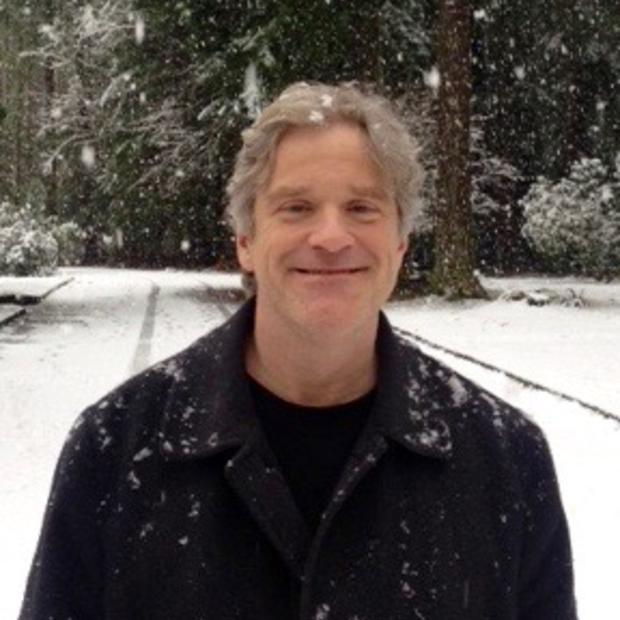Danny Westneat of the Seattle Times puts a political cast on the parlor game "Would you ever?" (as in, "Would you ever refuse treatment for some gadabout because he was too lazy to purchase health insurance?"). The question was red meat for a ravenous audience at last week's Republican presidential debate in Tampa. Westneat writes, "Forcing people to buy anything does push the envelope. The individual mandate may be judged unconstitutional. But wishing everyone would be responsible isn't going to make a bit of difference up at Harborview. We'd have a better chance of solving this issue if we could just honestly answer: What do we do with the uninsured guy?"
Westneat's neat distillation knits together ethics and public policy. Remember Jeremy Bentham in college Philosphy and the business of measuring the relative worth of something in "utils?" Westneat's Sunday column begs the question: Are Republican contenders employing utils and acting like yokels? "I'll hand it to the tea partyers, though, the ones who whooped for letting him die. At least they answered the question," Westneat notes.
Time to pull back the curtain and ask whether de-politicizing the Washington Redistricting Commission is the real-world equivalent of removing "human" from "human nature." The Tacoma News Tribune's Peter Callaghan uses the question of U.S. Rep. Norm Dicks representation of Tacoma 20 years ago to illustrate his point. "Playing amateur cartographer, I theorized that with the addition of a new congressional district — the 9th District — there was no way U.S. Rep. Norm Dicks could maintain both Tacoma and his home turf in the Kitsap and Olympic peninsulas," Callaghan writes. Confident in his judgment, he even made a wager (note: Callaghan was still young 20 years ago). And then Callaghan abruptly learned that politics, like capitalism, has an invisible hand. "While the state constitution might have been amended in 1983 to create a bipartisan redistricting process, it remains a highly partisan process. It created a balance of power between the parties that has usually meant both parties’ partisan needs are met, including the care of their incumbent members of Congress," he reports. Callaghan's wisdom can be reduced to the word of the day: magoozle. Originally defined by Seattle's Bill Spiedel, it means "to get the job done" (but please just don't ask exactly how the job gets done).
Inspired writing merits a hat tip, especially when it crystallizes a crucial subject. Sarah Weiser does just that in her Sunday Everett Herald profile of Jordan Finley, a 23-year old veteran from Lake Stevens. Weiser sidesteps hagiography and patronizing bluster. No superlatives, no ad hominems. It's simply a good story, well told. "Before the parade, Jordan had sat down in his room and laced up his combat boots. He first tucked his dog tag into his boot laces four years earlier, before he left for Iraq. It was still there, safe. He put his service ribbons, the colored pin showing his deployments — a tour in Iraq, a tour in Afghanistan — into the pocket of his white-checked dress shirt," Weiser writes. There's a Ron Kovic Born on the Fourth of July undercurrent, a poignant, unvarnished narrative of a life interrupted.
Are quadratic equations an obstacle? If so, it would be wise to avoid noodling today's Oregonian story that explains how online gamers have helped University of Washington researchers decode a retrovirus. Joe Rojas-Burke reports, "University of Washington scientists unleashed an avid group of online gamers. Within three furious weeks of play, pitting teams of non-scientists against each other, the gamers delivered the first accurate model of a retroviral protease. Knowing the structure is a key step toward finding better anti-viral drugs." So, it's Nintendo meets Sylvia Nasar's A Beautiful Mind with a Husky overlay. That is the shallow but smart-sounding way to describe something incomprehensible to Midday Scan.
Lastly, Seattle's Jonathan Raban receives major plaudits in the Seattle Times over the weekend, as he did earlier in the The New York Times, for his new essay collection, Driving Home: An American Journey. "In this book, Raban supplies myriad observations about his adopted home, but also on the larger American landscape, riffing on the West, urban architecture, national political trends ('At the Tea Party' is the final essay in the book), the dot-com economy, and most sublimely, about nature," writes David Takami in the Seattle Times. Proof again that it takes a discriminating outsider from a faraway land like the U.K., or maybe Everett, to hold up a mirror to Seattle.
Link summary
Seattle Times, "Life or death for an uninsured freeloader"
Tacoma News Tribune, "Redistricting immune from politics? Don't bet on it"
Everett Herald, "The battle within: Trying to find the man inside the Marine"
Oregonian, "Online gamers enlisted by University of Washington deliver big-time scientific results"
Seattle Times, "'Driving Home': Jonathan Raban all over the map"


